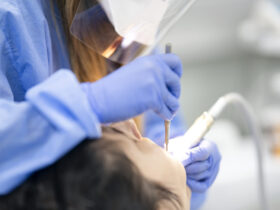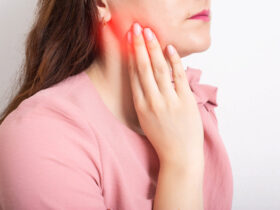Dental crowns play an important role in restoring damaged or weak teeth and improving both function and appearance. While they are a very good solution, like any other dental procedure, they also have some problems. If you are aware of these common issues and how to prevent them, you can manage to keep them intact for a long time.
If you are facing dental issues, then contact a professional dentist in Wylie. A well-qualified dentist will check your oral health and suggest a treatment plan according to your needs.
Read this article to learn about some common issues that are related to dental crowns and learn how to manage them so that you can maintain your crowns and avoid any unnecessary problems or damage.
Sensitivity and Discomfort After Placement
It is very common for many people to have some sensitivity, especially from hot or cold foods, after having a crown placed. This sensitivity is for a short period of time and will go away as your tooth adapts to the new crown. Still, if you face this problem after a reasonable time period, then it can be a sign of an underlying issue.
The precise placement of dental crowns is very important to avoid any kind of discomfort or sensitivity. Also, follow your dentist’s advice after your procedure. Use desensitizing toothpaste that can help in giving some relief.
Visit your dentist regularly to check your crowns and make any important changes that can help keep sensitivity under control.
Problems with Crown Fit and Bite
If your crown does not fit you properly, then it can cause many types of complications like discomfort in biting, gum irritation, and even jaw issues because of uneven distribution of pressure.
Correct impressions and evaluation by an experienced dentist are important for the proper fitting of crowns. Before the placement is done, a bite check is performed to make sure that the crown feels comfortable and functions well.
An improperly aligned crown can cause unwanted problems like TMJ disorders if it is not treated at the right time. If you feel any kind of discomfort, then contact your dentist as soon as possible so that they can make any important adjustment before it leads to a bigger problem.
Crown Loosening and Dislodgement
Crowns can get loose over time for many reasons, such as poor cementing, excessive pressure, or decay forming underneath the crown. When a crown becomes loose, it can increase the risk of detachment, which can expose the covered teeth and cause damage and infection.
Crown loosening can be avoided by some habits like putting pressure on your crown by chewing hard objects like ice or hard candies. Proper oral hygiene is also important because it prevents decay at the base of the crown, which may affect the adhesive bond.
In case your crown becomes loose, see your dentist for proper fixation of the crown to stop any further complications.
You can easily detect a loose crown if you feel any kind of shifting sensation when your crown is touched, or food gets trapped in between your crown and the tooth next to it. If you recognize these signs early and take immediate dental care, then it can prevent the crown from falling out completely and minimize the need for repairs or replacement.
Gum Irritation and Inflammation Around Crowns
Your gums can easily get irritated or inflamed if your crown is not fitted properly. This improper placement causes swelling, discomfort, and sometimes infection in the gum tissue.
Patients should take care of their oral hygiene by flossing and regularly using antibacterial mouthwash to prevent any complications in gums. Oral cleanings with check-ups can help in detecting any problem and keep your gums healthy.
Keep Your Smile Strong
Taking care of your oral health is the first step in ensuring good overall health. If you or someone in your family is facing dental issues, then contact a professional dentist today who can help you prevent any issues and keep your smile bright and healthy.












